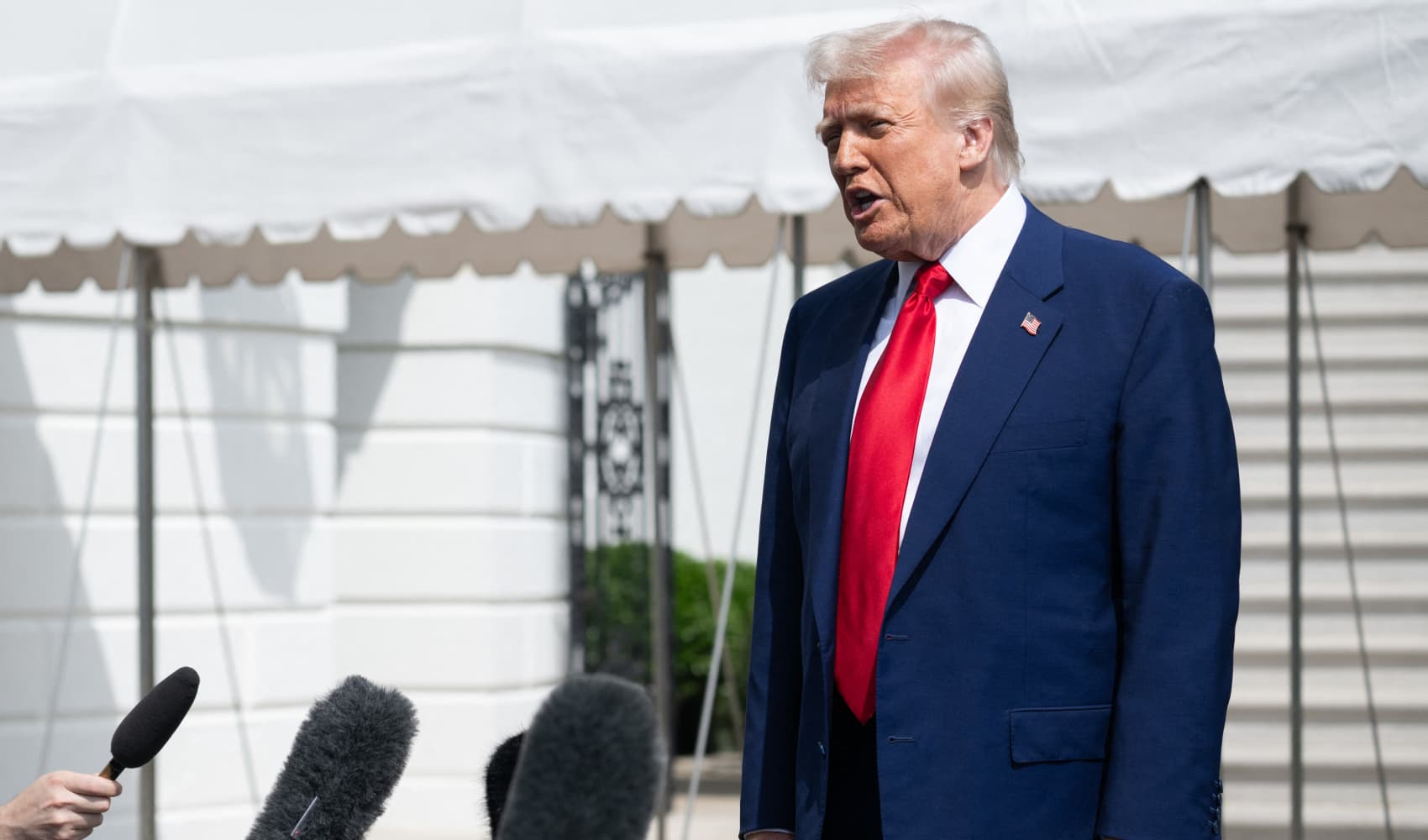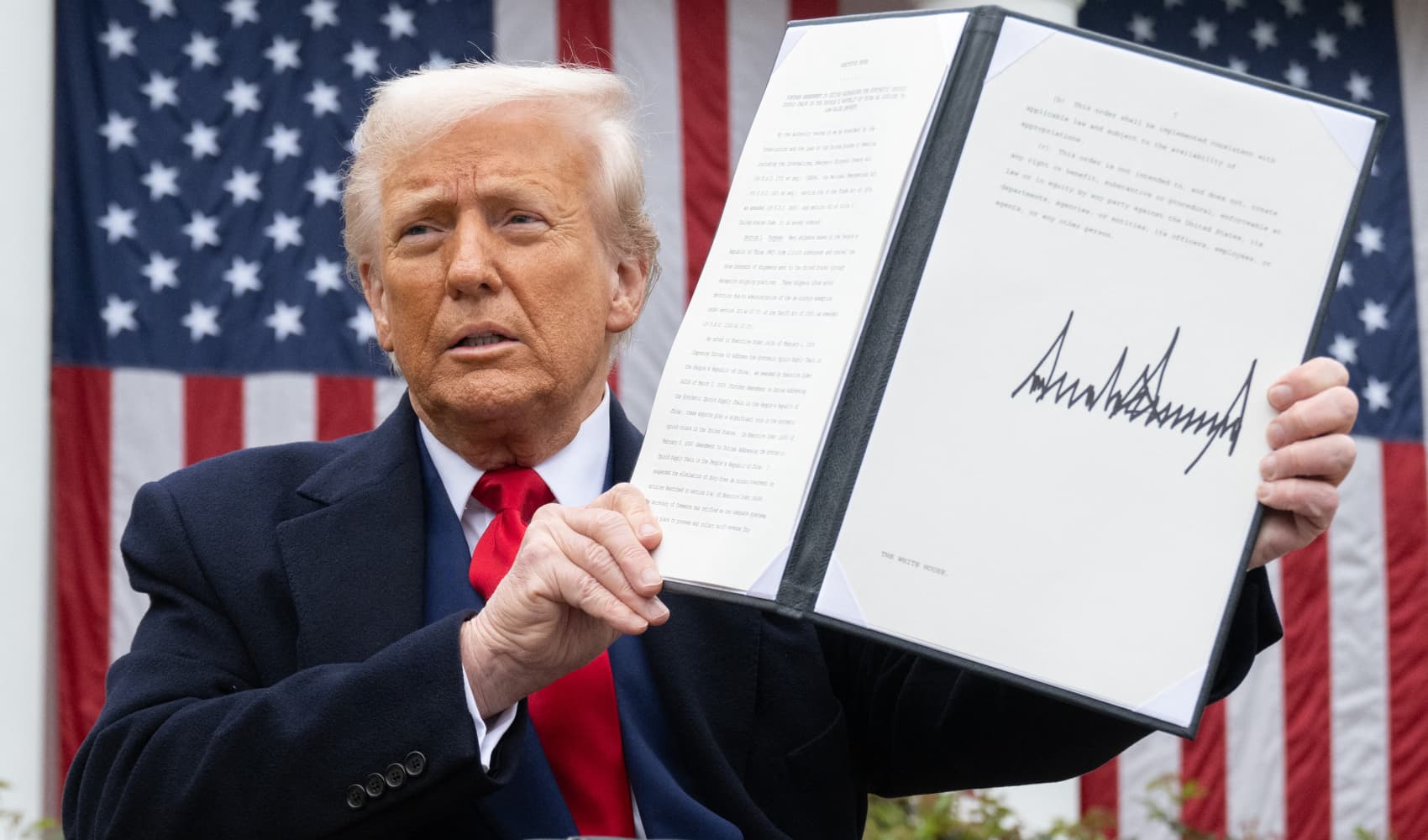
Kelly Evans, Co-Host of CNBC’s Power Lunch
I don't think what's going on in the market is just about tariffs. I think the tariffs issue has now snowballed into something even bigger.
It appears that the Trump administration's tariff policies are now losing it broader momentum and support. You can see it in the plunging consumer sentiment numbers (which were also a red flag for Biden). You can see it in his falling approval ratings on inflation and the economy. You can see it in the town hall protests across the country, and the major crowds showing up for rallies with Bernie Sanders and Alexandria Ocasio-Cortez.
You can especially see it when Democrats flip a Pennsylvania state senate seat in a district Trump had just won by 15 points, as happened last Tuesday. Or when the president pulls his nomination of Elise Stefanik as U.N. ambassador amid doubt the GOP would win the special election to replace her in a district Trump won by 20 points. Or when Republicans are "anxious" about winning tomorrow's election in Florida to replace national security adviser Mike Waltz--who won by more than 30 points in November.
This matters for the market, which came rip-roaring into this year excited about deregulation and the extension of the Trump tax cuts. But Republicans have the tiniest of majorities in the House of Representatives. Lose just a few seats, and suddenly you can't even pass anything without Democratic help. And they may already be close, losing Massie from the right wing, and having centrists now worried about losing reelection.
And the clock is ticking on their massive budget bill that needs to get done by year-end to extend the tax cuts, or to risk "economic calamity," in the words of Treasury Secretary Bessent. Maybe that's a touch hyperbolic, but taxes going up on all Americans--which would otherwise happen--is certainly not what the president or the market had in mind when he was elected.
The problem is, the GOP's majority in the House is so slim that they have to use reconciliation to pass their budget bill. That means the bill technically can't increase the deficit. But extending the tax cuts costs $4.6 trillion over a decade. So the GOP has to find huge cost savings that would offset that, like cuts to Medicaid that politically vulnerable House Republicans are now warning they might not support.
The net result? The White House may now be considering allowing tax hikes on the highest-income Americans. That could "free up more revenue" to do things like cut taxes on tips, which was a popular campaign pledge, and to "help blunt Democrats' attacks" on the budget bill, Axios reports. Rates on top earners (for married couples, that's $730,000 or so and up) would potentially go back up to 39.6% from 37%.
Money Report
Punchbowl's Jake Sherman cautions he hasn't heard of any congressional Republicans who would support this--yet. But if the GOP did embrace it, they may not even need to use reconciliation to pass the budget bill. "They can drop many of their Medicare/Medicaid/Social Security savings and just do a bill with Democrats," he mused yesterday.
Now try working out the deficit and growth impacts of that, and you can see what this market is having to contend with. Every new tariff announcement seems to throw not just the affected industries, but the economic and political landscape for the rest of the year into question.
Get a weekly recap of the latest San Francisco Bay Area housing news. Sign up for NBC Bay Area’s Housing Deconstructed newsletter.
See you at 1 p.m!
Kelly






